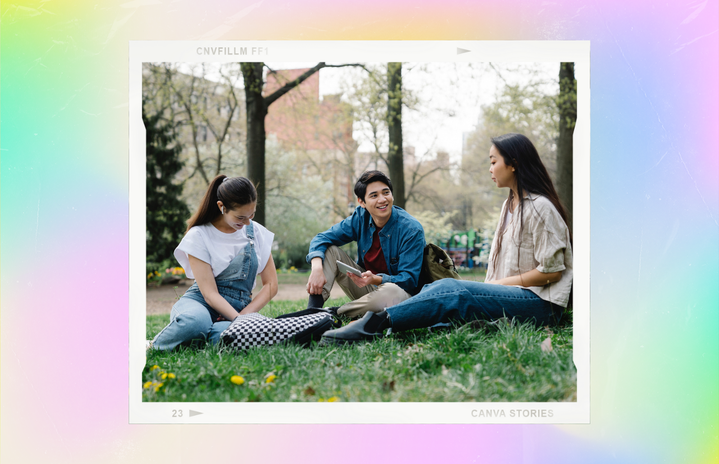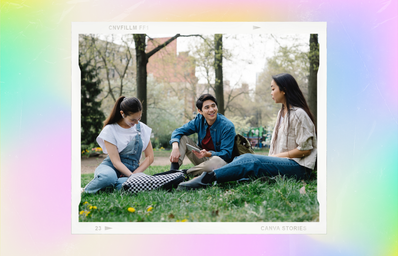When I was getting ready to pack up and head off to college, one of my biggest fears was making friends in a brand-new place. I had moved before, but I was moving with my family so at least I had someone with me. Finding friends in Gainesville was going to be a completely new experience. My parents and high school teachers told me repeatedly that the people I met in class and on campus would quickly become my friends due to our similar interests, however, after my first year in college that felt far from the truth. Aside from the class subject or a passing compliment, I found it hard to find other common interests or to see those people outside of a school setting. Nevertheless, as I’m working through my second year here, I’ve noticed that some of the people in my first-year classes are slowly becoming some of my closest friends. So, how hard is it?
Bridging the gap between turning your class friends into your close friends often requires more intentional effort and a shift in how you interact with them. In a classroom setting, friendships are typically formed through shared experiences like group work, discussions, or studying together. These connections are often more surface-level, based on common academic goals rather than personal interests or emotional support. Emily Rotgers, a junior here at UF, said “The main thing when it comes to bridging the gap is time. Time outside of school where you interact with each other. That’s the make-it-or-break-it. And how much you do it.” To deepen these relationships, it’s essential to move beyond just studying or talking about classwork. Taking the time to learn about each other’s personal lives, hobbies, and aspirations can help transform these acquaintances into genuine friendships.
One effective way to bridge the gap is by extending invitations outside the classroom on your own instead of waiting for the invite to be extended to you. While studying together can build rapport, socializing in a more relaxed environment, like going for coffee, grabbing lunch, or attending events together, allows you to connect on a different level. In these informal settings, you can talk about shared interests, mutual passions, and even more vulnerable topics. Spending time with your class friends outside of the academic space creates opportunities for your bond to evolve from mere classmate interaction to a more personal and supportive friendship. But it’s important to keep in mind that it won’t always work out with the people you hope it will, and that’s okay.
Of course, spending more time together is helpful, but that doesn’t negate the fact that it’s still a difficult and long process. Making close friends out of classmates is primarily hard due to the context of your interactions. Academic settings are often task-focused rather than relationship-driven. Classrooms are environments where people tend to be focused on their grades, assignments, and deadlines, which can create a more transactional atmosphere. While you might work together on projects or engage in class discussions, these interactions are typically centered around the course material, not on getting to know each other on a personal level. This limited context can make it harder to form deeper emotional connections, as the relationship doesn’t have the space to evolve beyond academic collaboration. Another junior here at UF, A. DeVries, talked about how it’s even harder when everyone in the class seems to get along because it’s hard to find the person who sticks out to you the most.
Additionally, the fast-paced nature of student life often leaves little room for building meaningful friendships. DeVries went on to say that another factor that makes it so hard is how busy everyone is with classwork and other friends or roommates. With crammed schedules, it’s hard to make time to foster genuine connections with new people. Many students are juggling multiple responsibilities, such as other classes, part-time jobs, extracurricular activities, or personal issues, which leaves limited time for socializing outside of class. Even if you have a positive rapport with classmates, the demands of school often make it difficult to prioritize these budding friendships. Furthermore, semesters and academic years always end, which can create a sense of uncertainty or reluctance to invest too much emotionally in classmates who may not be around for long. As a result, the initial connections may stay shallow, as both people are hesitant to fully open up or commit to building something more lasting.
I think that one of the most crucial things when it comes to deepening these relationships is building trust and mutual support. Being a good listener, offering help beyond just coursework, and showing interest in their lives are all ways to demonstrate that you value the person as more than just a study partner. It’s important to be patient, as building a close friendship takes time and consistency. By being reliable, empathetic, and considerate, you show that you’re invested in the friendship, not just in the academic benefits of the relationship. Over time, these small, thoughtful gestures can strengthen your connection and turn classmates into close, lifelong friends.
So, turning class acquaintances into close friends is undoubtedly challenging, but it’s not impossible. It requires intentional effort, time, and a willingness to go beyond academic collaboration to engage on a more personal level. By inviting classmates into social settings outside the classroom, showing genuine interest in their lives, and investing in building trust, these initial connections can evolve into meaningful, lasting friendships. While the demands of student life and the structure of academic environments can make it harder to connect deeply, taking the time to nurture these relationships can lead to rewarding friendships that extend well beyond the classroom. Ultimately, the process may be slow, but the payoff—genuine, supportive friendships—is well worth the effort.


